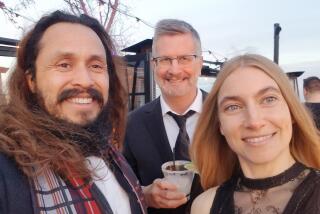Disgraced cloning scientist Hwang Woo-suk guilty of embezzlement
SEOUL — Disgraced South Korean cloning scientist Hwang Woo-suk was found guilty Monday of embezzling from his stem cell research fund and illegally buying human embryos.
The Seoul court also ruled that Hwang, 56, who became a national hero after he claimed to be the first to successfully clone human stem cells, had partially fabricated the results of his research. He was given a two-year sentence that was suspended provided he stayed out of trouble with the law for the next three years.
“He feels deeply sorry that this case elicited so much criticism in the scientific field and shocked the public. . . . His wrongdoing is not minor but does not merit the severe punishment of a prison sentence,” the Seoul Central District Court said in the verdict.
Hwang’s surprising findings in his stem cell research drew him a cult-like following. Immediately after he disclosed the findings in 2004, many medical experts and patients hoped that the breakthrough might lead to cures for diseases such as cancer.
The South Korean government had touted him as a national hero and announced plans to set up a committee to promote Hwang as a candidate for a Nobel prize. Time magazine named him one of the world’s 100 most influential people in 2004. The following year, Hwang’s team of scientists at Seoul National University created Snuppy, the first known cloned dog.
But a local television report raised ethical questions about the human eggs used for his research, and eventually his two published papers on the research were found to have been fabricated. As suddenly as he gained fame, he became embroiled in a national scandal.
Hwang made a public apology and eventually was fired from his professorship at the university.
“I ask for your forgiveness,” he told a nationally televised news conference in his first public appearance after a university investigation confirmed his research data had been manipulated. “I feel so miserable that it’s difficult even to say sorry.”
In 2006, prosecutors charged him with fraud and embezzlement of about $700,000. They sought a four-year prison term for Hwang, who went through more than 40 court hearings over three years before Monday’s verdict and sentencing.
Despite the revelations of fraud in his research, Hwang’s career didn’t appear to be shattered. He founded a research institute and published several papers. His research team joined with a provincial government to launch a hog-cloning project.
A few days before the verdict, dozens of lawmakers filed petitions asking the court for leniency in Hwang’s case. Hundreds of fans were waiting outside the court Monday as they had done during the hearings over the last few years.
“Dr. Hwang has conducted his research tirelessly under terrible conditions,” said Hyun Sang-hwan, a veterinary professor at the Sooam Biotech Research Foundation, founded by Hwang. “And he will continue to do so, thanks to a great amount of public support.”
--
Ju-min Park is with The Times’ Seoul Bureau.
More to Read
Sign up for Essential California
The most important California stories and recommendations in your inbox every morning.
You may occasionally receive promotional content from the Los Angeles Times.










